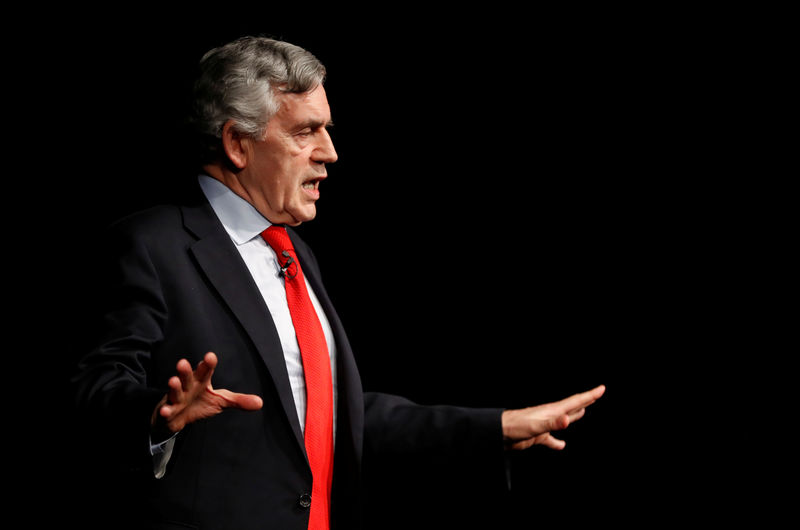By Andrew MacAskill
LONDON (Reuters) - Former British Prime Minister Gordon Brown said on Thursday the government should delay the formal process of leaving the European Union by a year to hold citizens' assemblies to break the political impasse over Brexit.
With the clock ticking down to March 29, the date set in law for Brexit, the United Kingdom is now in the deepest political crisis in half a century as it grapples with how, or even whether, to exit the European project it joined in 1973.
Earlier this week, Prime Minister Theresa May's two-year attempt to forge an amicable divorce with an independent trade policy was crushed by parliament in the biggest defeat for a British leader in modern history.
Brown, Labour prime minister from 2007 to 2010, said there was rising public anger over what people perceive as an out-of-touch elite and a paralysed parliament.
"It is the lethal combination of a deadlocked parliament, an ever-more divided country and the mounting distrust between parliament and people that makes me fear for our cohesion," he said in a speech in Edinburgh.
"If parliament on its own cannot solve the problems it has created and if we are in uncharted waters – like a boat at sea, with no compass, no map and no life jackets - it is time to think afresh."
Citizens' assemblies, which have been deployed around the world, see members of the public confront social or political challenges politicians have been unable to resolve.
Facilitated by experts, they are aimed at removing the conflicts of interest and loyalties that can hamper politicians in reaching a conclusion.
Brown said they have been used in Canada, the United States Ireland to tackle thorny political topics such as abortion legislation.
He said that over the past two centuries, parliament had eventually been able to resolve other political crises by compromise and reform. But the current situation was unique because parliament seemed incapable of breaking the deadlock.

"Precisely because parliament has reached an impasse, citizens' assemblies offer a fresh opportunity for parliament to hear how representative groups of people across all regions and nations think unity can be restored," he said.